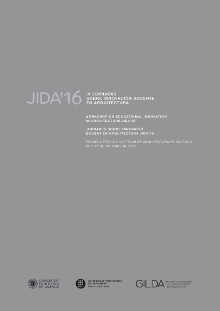JIDA'16
PAPERS
-
Learning processes in architecture have always been a complex and difficult research field; the specific qualities of architectural education from childhood to adulthood are far from to be really known. We will present some studies, some coming from works with children in primary school and some from the university level in the school of architecture in Barcelona. We will analyze with some examples how the dialogical dimensions of the knowledge of architects can be developed, underdeveloped and even destroyed in education. Some conclusions will intend to uncover how to bridge the gap between practice and theory in architectural education, and then we can immediately understand that this gap has been produced by the wrong assumption that learning and design architectural processes can develop out of their social and cultural-geographic circumstances, in an abstract and apolitical place, where the relationships between experience and reflection can never exist.



















